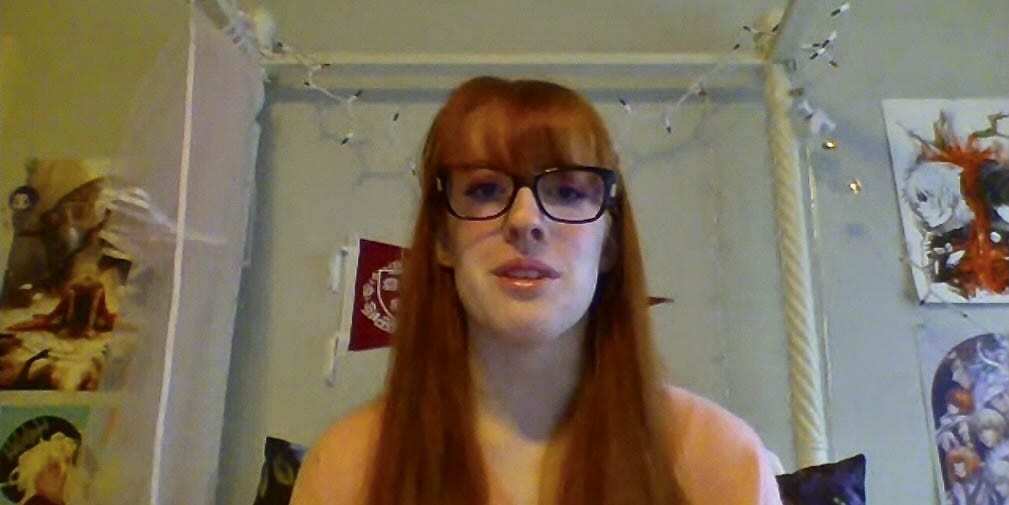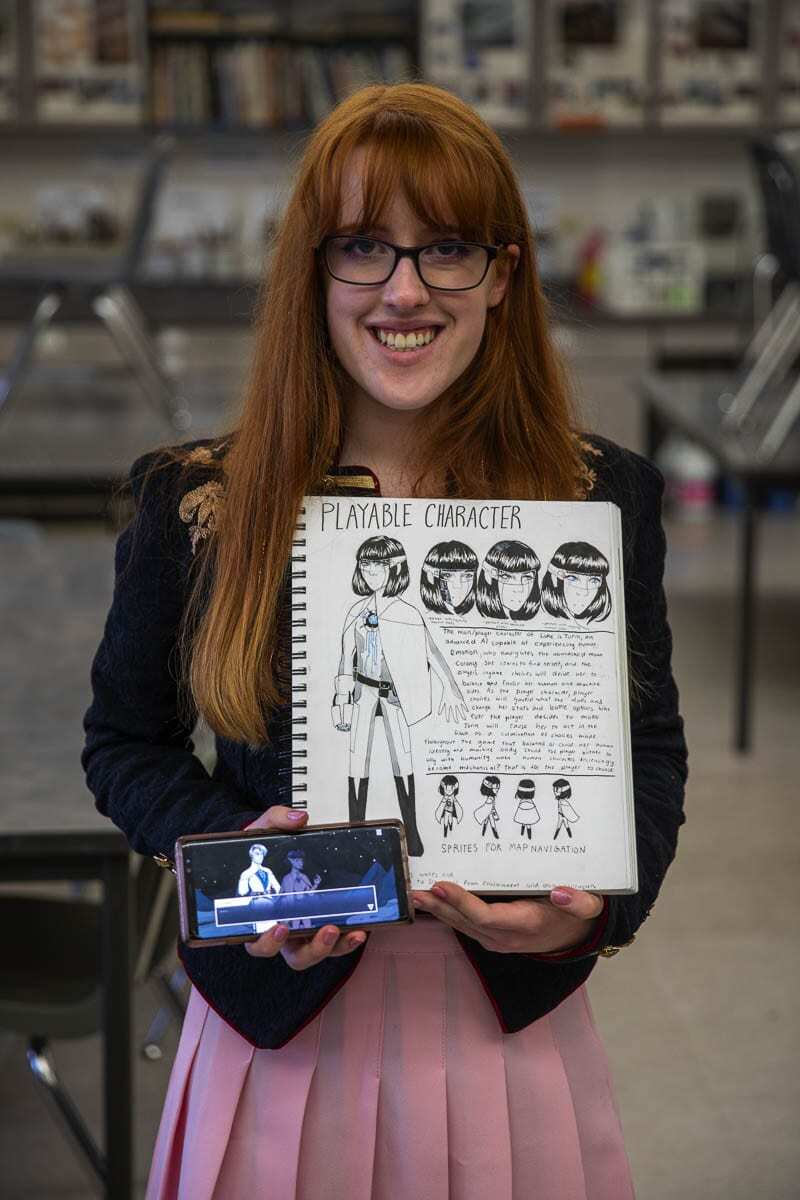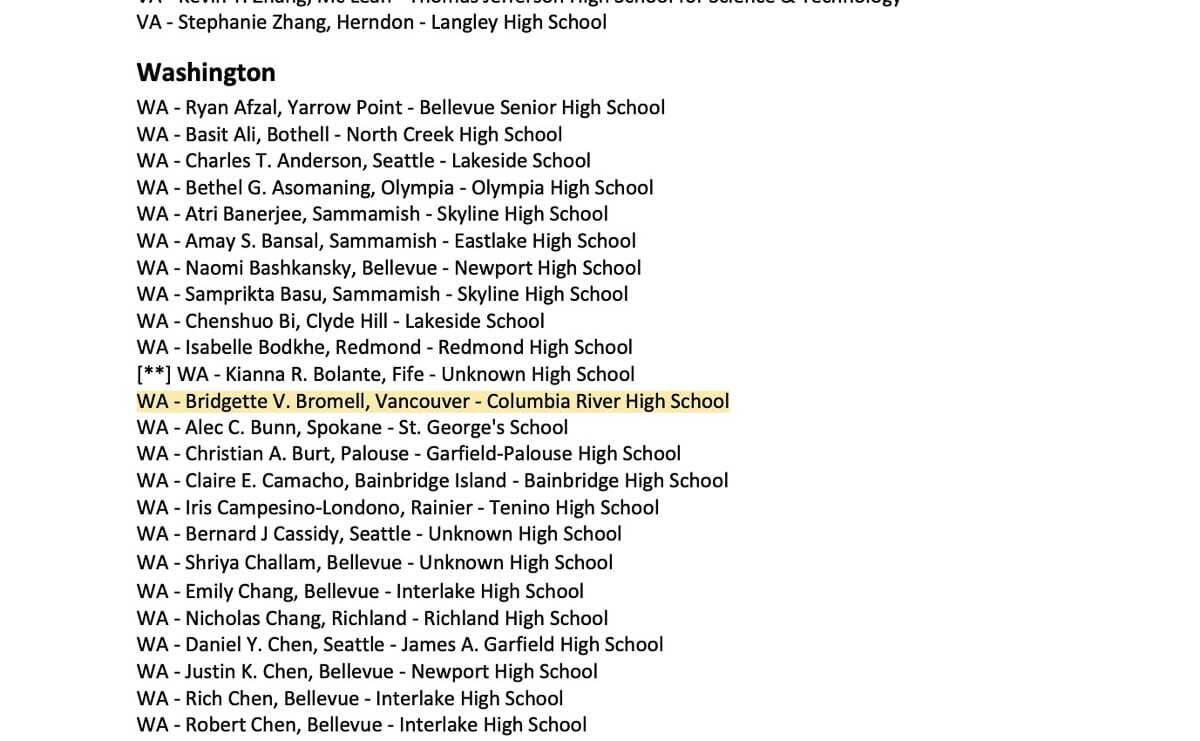4,500 nominees will be narrowed to 600 semi-finalists, 161 final scholars
VANCOUVER — Last time we heard from Columbia River High School student Bridgette Bromell she was making games with Google. Now, she’s on track to become a U.S. Presidential Scholar.
The program accepts nominations from state education officers and partner organizations from each state in three areas: academics, creative arts and technical education fields. Bridgette was nominated for her academic achievements on the SAT as well as her scientific research.

“It feels really amazing,” Bridgette said. “I had looked at this program in the past. It was like, ‘Oh, wow, that seems really cool. But I wouldn’t get there.’ But here we are. So it’s really exciting, and I’m really grateful to everyone who supported me up to this point.”
The program began in 1964 as an executive order by then President Lyndon B. Johnson. Each year the program starts with close to 4,500 nominees, and narrows the field until 161 finalists receive the accolade. To date, the U.S. The Department of Education has awarded over 7,500 Presidential Scholar Medallions at a White House ceremony.
It is widely regarded as the highest level national achievement possible for a graduating senior in America.
Bridgette is currently planning to pursue a career in neuroscience, as she is very fascinated by dementia research. As a project in her biology class at Columbia River, she worked on a science fair research presentation that was entered in the International Science and Engineering Fair, or ISEF.
“She wanted to know, is there a relationship between diabetes and dementia and heart disease,” said Kelly Cameron, Bridgette’s Biology teacher at Columbia River. “She did a kind of a meta analysis, which we don’t really teach in school how to do that. We did a little bit of how do you look at that kind of data, but she just really self taught herself. She was a go getter. She actually had so much information, she kind of had a hard time figuring out what she could actually put on her science fair board. She, and another pair of river students won Best of Fair.”

Bridgette said the pandemic did make it challenging to adapt to the changing environment of her senior year. Normal everyday learning obviously looked vastly different, but also many of the opportunities that were open to her from her achievements.
Large conventions and award ceremonies were made virtual or canceled, and internships with hands-on training were reduced to Zoom calls. Instead of being discouraged, she said she took it as an opportunity to adapt, and think outside the box.
“It was a challenge, but I am grateful, because it did open up certain opportunities that I may not have had otherwise,” Bridgette said. “I saw these programs, and I saw a chance to get involved in research and these things that I would like to do after college and during college. It was this opportunity to start learning about and getting involved in these things early on.”
To start her on a path to a possible MD Ph.D, Bridgette had the opportunity to work in the Partnership in Science Inquiry program with OHSU. Right before the pandemic began, she was able to attend a few in-person research in the lab at the hospital and university, and throughout 2020 continued learning through the program remotely.
“You have to put yourself out there, you have to take risks and Bridgette is a great risk taker. Her Google Play challenge was a risk for her because it’s kind of out of her comfort zone,” Cameron said. “I think a lot of kids think, ‘Oh, the only people who ever actually get nominated for these, it’s because they’re in this huge magnet program that has a connection to a nearby University, or their parent was a scientist or doctor.’ But anybody can do this kind of research. You just have to kind of be willing to put yourself out there.”
Of the initial 4,500 nominees, there will be 600 semi-finalists chosen through interviews, Bridgette said. She hopes to continue through the process, but said she has been inspired and is grateful either way.

She also said if others want to do what she’s done, the first step is to think bigger.
“Look beyond the normal areas that you would think for opportunities, don’t just look within your school, try to look within your city, your community and don’t be afraid to apply for things,” she said. “There have been certain programs that I applied to and it’s like, ‘there is no way I’m getting this,’ and then it worked out. And there were some that didn’t work out, and taking losses, but then being able to celebrate the victories was amazing.”




